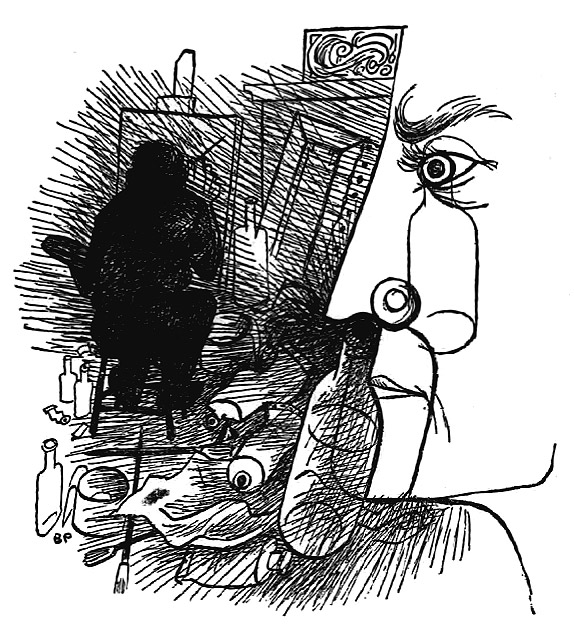
Is the pervasive resistance to untethering ourselves from our social worlds or disconnecting ourselves from the media drip, even for an instant, at root a fear of the emptiness in our heads? What does it say about us, as a society, if we’re unable to be alone and unplugged without being bored or lonely? Is the girl in Deresiewicz’s anecdote who wonders why anyone would want to be alone an outlier or a poster child for our times? If Deresiewicz is right, should we preserve some small space in our lives for solitude—a Walden of the mind, away from the Matrix? —“A Walden of the Mind: The Fate of Solitude in the Age of Shariness,” Mark Dery, True/Slant
You may not sneaked, you must not snucked;
“stop spending! stop spending! stop spending!”
Kissinger, surrender-monkey
It’s no great mystery that seasoned warriors like McChrystal harbor a secret relationship with their self-destructive side, what Conrad called “the fascination of the abomination.” You don’t habitually parachute out of airplanes nor go to shuras in treacherous tribal areas without body armor if you don’t enjoy stepping up to the brink from time to time, both in word and deed. And with a samurai like McChrystal there was never, ever any doubt about his physical courage, except to wonder if he didn’t suffer from a surplus of it, if his valor didn’t in some way deafen him to the better angels of his nature or force him to rely too heavily on his physical vigor to the detriment of his compassion, prevent him from cultivating the killer empathic sense that both Lee and T.E. Lawrence possessed which allowed them to project themselves into the mind of their opposite, be it an enemy commander or a visiting journalist. —“The Stringer and the Snake-eater,” David J. Morris, VQR
The arcane virtues of the techno-Luddite;
the “tensions and pleasures” of Brooklyn’s class war;
“radical honesty,” or yet another way to keep the writer’s belly full;
five places we’re all going to die
On March 30 of 1906, Ty Cobb interrupted his spring training to travel to Lavonia, Ga., where his mother’s five lawyers were squaring off against the state’s four-attorney prosecution. Amanda Cobb was questioned in detail about the time between the two shotgun blasts and other specifics of that night, providing at least some contradictory testimony. But the prosecution made no mention of possible infidelity on Amanda’s part, and the all-male jury found her innocent, based almost solely on her testimony that she had been awakened by what she took to be an intruder and had acted to protect herself, resulting in a horrific accident. —“Ty Cobb: Death in the Dark,” Kurt Rheinheimer, Blue Ridge Country


